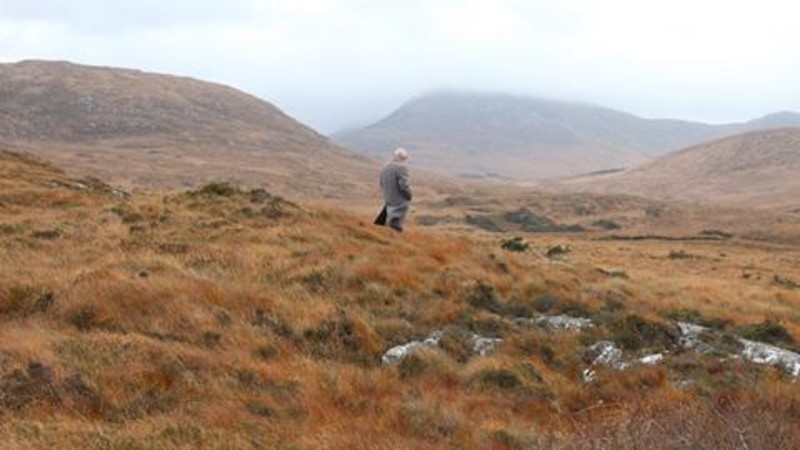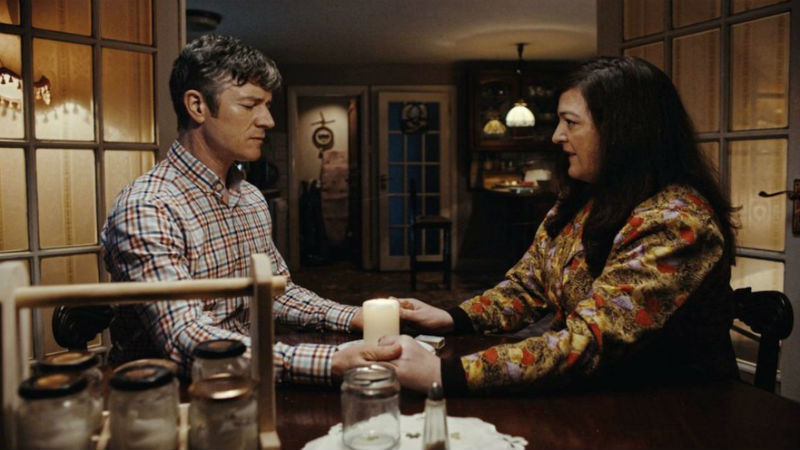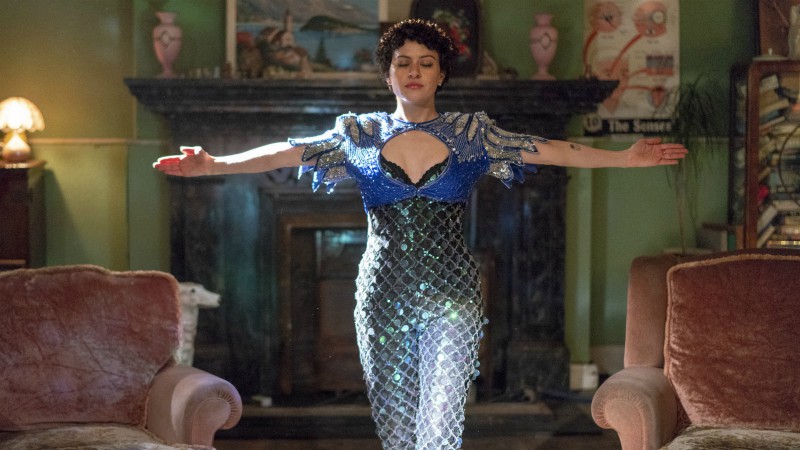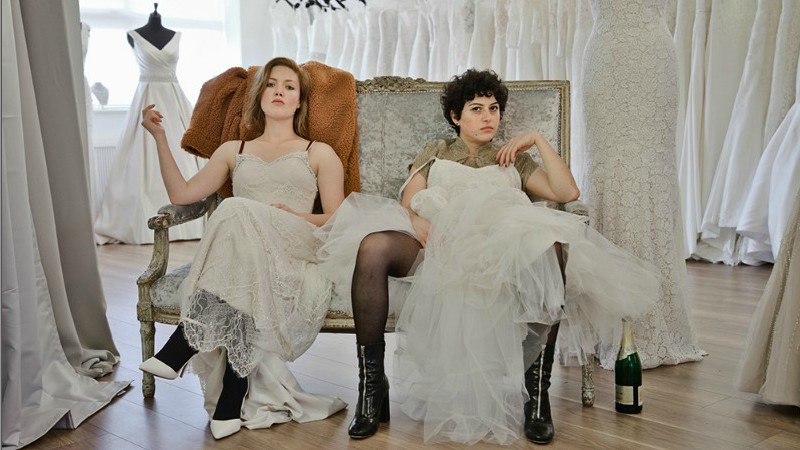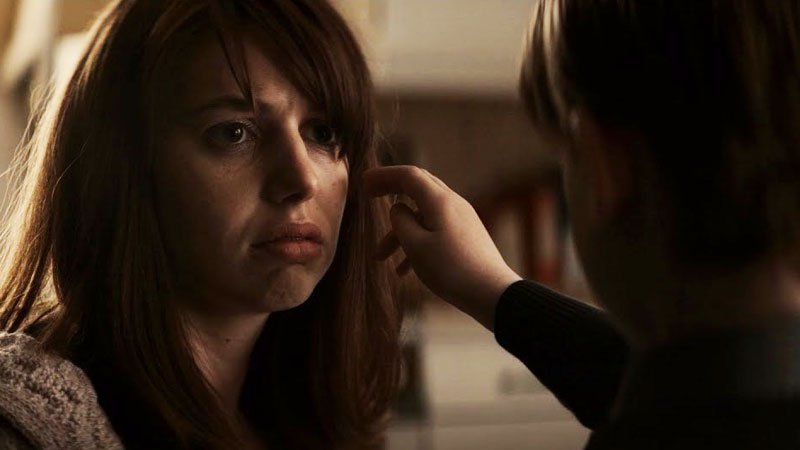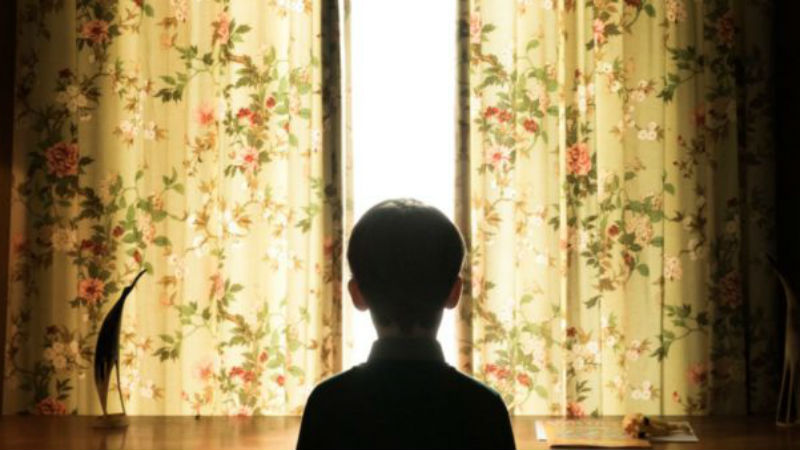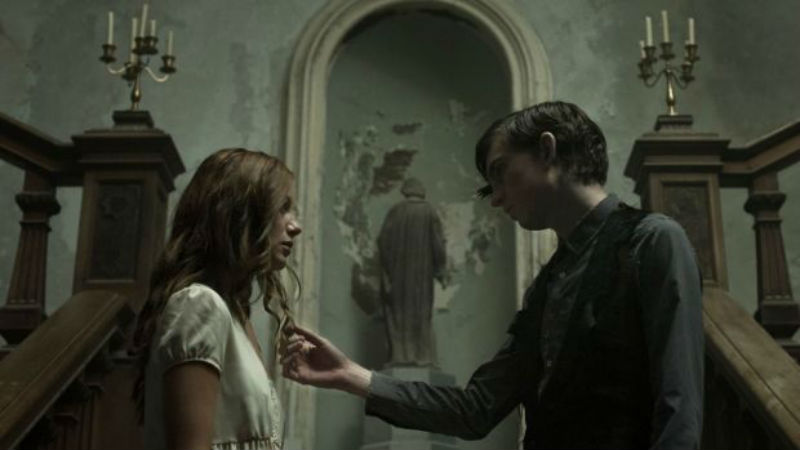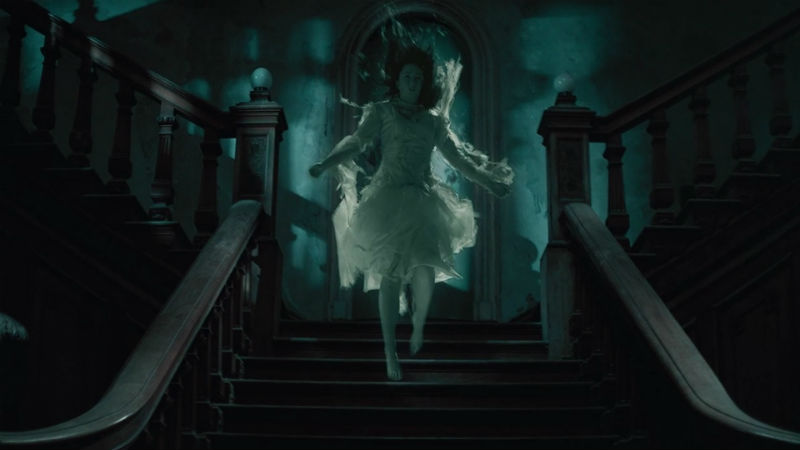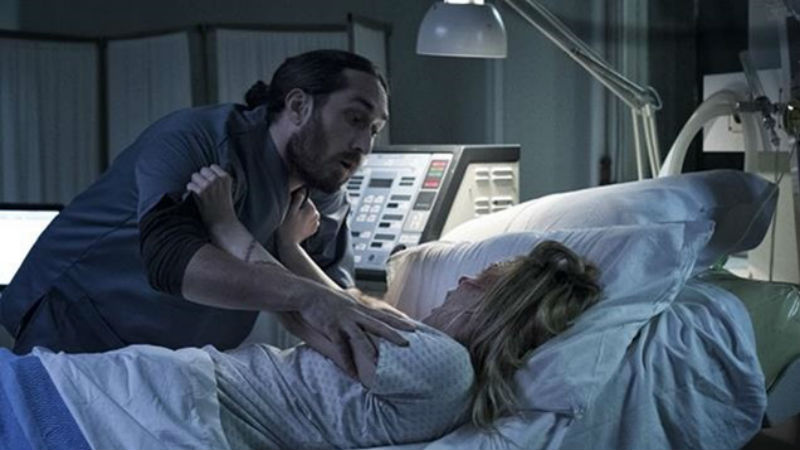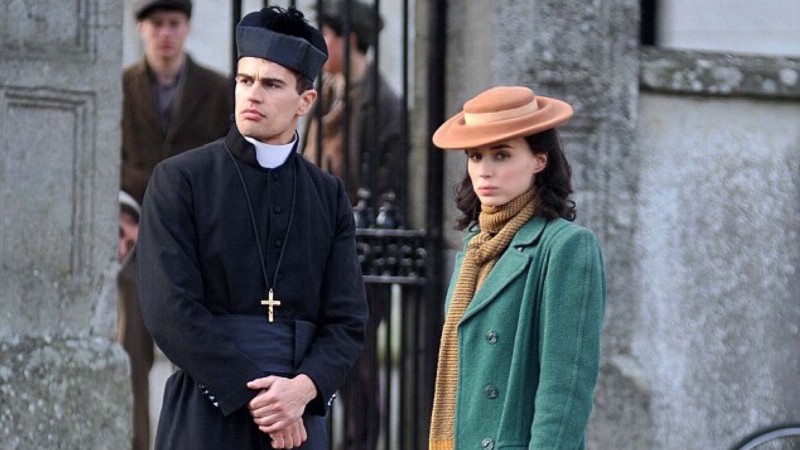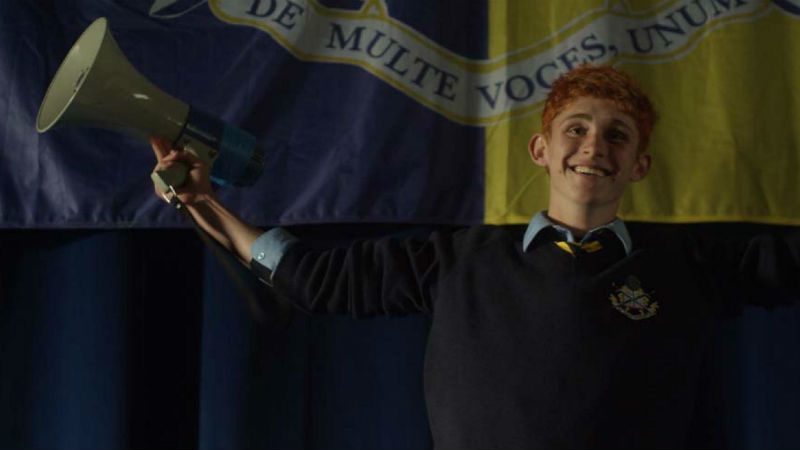QUICK SNAP: LIVE FROM THE TALLINN BLACK NIGHTS FILM FESTIVAL
Seated on a cabin, Fincaí an Folaí (Dara Devaney), nicknamed Finky, operates a string puppet show. Speaking the gorgeous Irish that slithers his tongue, he pulls the wooden dolls from their spirited slumber to rallying childlike whoops. In itself, it foreshadows the lethargic tone the film takes through an impasto of impressively bizarre shots.
It’s the beginning of a convoluted tale that this writer can’t entirely make out, though the uncompromisingly cryptic standing does much to recommend the film as a visual experience. Through the cascade of silhouetted, yellow-lit aquatic lights sits one of the battiest comedies in years. Superficially, Finky works as an Irish language Terry Gilliam-like fairy tale. Yet unlike the blithe Brothers Grimm (2005) and The Man Who Killed Don Quixote (2016), this pays obeisance to the ugly side of the fairy tale genre.
Finky, a character whose life is as vacuous as the wood he pulls, ups and leaves to Glasgow after he upsets an angular mob. His sins catch up with him as he wakes up in the film’s most beautifully filmed sequence, a hallucinogenic bromide that circles his enclosed bed with claustrophobic simmer. Paralysed from the waist down, our protagonist spends the rest of the film embedded to his chair, an eye patch blocking his sight, a metal claw in a hand’s place.
Director Dathaí Keane takes due advantage of the ongoing confusion, as Finky speaks in mumbled, parodic patterns, picking his clawed hand in order to insult his oily, priggish lawyer. Through his puppets and metal objects, Finky finds the freedom to express himself from outside the mask he wears, tussling a wine bottle to the head of an unwitting bar attendee when he demands to take down a mob gang.
Whatever the story is, it doesn’t entirely work, but what works exceptionally are the directorial flourishes that accompany it. A despondent Finky sits at his wheelchair, pouring the frustrations over a darkly positioned keyboard. A close cut caption over Buchanan Bus Station captures the silent passages passengers pull with naturalistic elegance. Meanwhile, a 30-second montage capturing the flopped patterns of tomato ketchup on chips works with an endearingly emotive quality, while a tussled bar fight lights with radiant neon lights permeating the ceilings. It’s one of the most beautifully lit Irish films I have ever seen. Plus, it’s in the Irish mother tongue herself!
It all leads to a satisfyingly inventive closer, a cascading helicopter floating piously over the ports of Glasgow. It all wraps up with another impressive choreography of stylistic symmetrical solitude. You don’t need a copy of Tomás Ó Criomhthain’s An tOileanach in order to enjoy the variety of shots on display!
Finky is showing at the 23rd Tallinn Black Nights Film Festival as part of the First Feature Competition.









